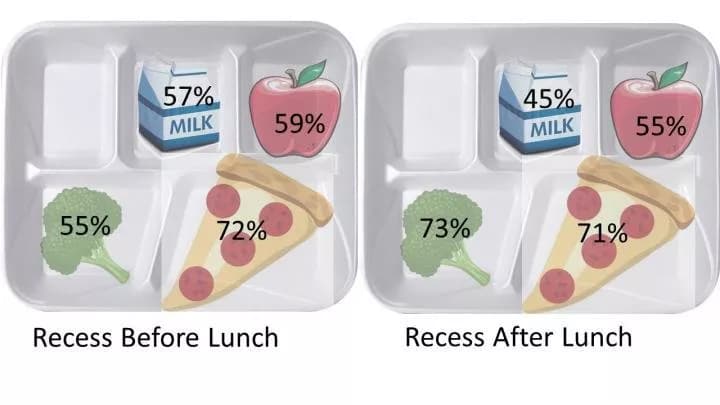
Timing And Duration Matters For School Lunch And Recess
A new study finds that the duration and timing of lunch and recess is related to food choices and physical activity of school children. These findings could help schools make policies that promote healthier school lunches and increased physical activity during recess.
Gabriella McLoughlin, a doctoral student at the University of Illinois, Urbana-Champaign, will present the new research at the American Society for Nutrition Scientific Sessions and annual meeting during the Experimental Biology 2017 meeting, to be held April 22-26 in Chicago.
"Most research has focused solely on nutritional intake or physical activity during recess," said Naiman Khan, PhD, assistant professor and leader of the research team. "This is the first study to objectively measure food intake at lunch in conjunction with physical activity and consider the influence of duration and timing."
For the study, the researchers assessed the lunch intake and physical activity of 151 fourth and fifth grade students from two low-income schools. Each school scheduled lunch either just before or immediately after recess.
The researchers found that:
- Although less food was wasted when recess was held before lunch, children consumed a greater proportion of vegetables when lunch was offered before recess.
- When children had a longer time for a combined lunch and recess period, children were proportionally more physically active when lunch was offered before recess.
- When the lunch-recess period was shorter, children were more active when recess was offered before lunch.
"Overall, our findings suggest that recess and lunch behaviors are interrelated," said McLoughlin. "However, the specific food choices and activity levels children engage in may be subject to the timing and duration of lunch and recess." The relationships between food intake at lunch and physical activity were independent of factors previously shown to contribute to recess activity such as a child's weight status and gender.
The current guidelines from the Centers for Disease Control and Prevention recommend scheduling recess before lunch to reduce overall food waste. Although the new study also showed reduced food waste when recess is before lunch, the findings suggest that current recommendations may have unintended consequences for the types of foods consumed and could affect physical activity during recess, depending on the duration of the recess-lunch period.
"We plan to communicate our findings to school teachers, administrators and policymakers to facilitate the implementation of evidence-based policies that support children's ability to meet their daily physical activity and nutritional recommendations," said Khan.
Now that the researchers have extensive data on children's physical activity patterns and lunch choices, the investigators are seeking federal funding to create feasible and sustainable school interventions based on their findings. They would also like to study whether policies regarding lunch and recess affect risk for obesity, success in academics and other markers of cognitive development in children.
Materials provided by Experimental Biology 2017. Note: Content may be edited for style and length.
Disclaimer: DoveMed is not responsible for the accuracy of the adapted version of news releases posted to DoveMed by contributing universities and institutions.
Related Articles
Test Your Knowledge
Asked by users
Related Centers
Related Specialties
Related Physicians
Related Procedures
Related Resources
Join DoveHubs
and connect with fellow professionals

0 Comments
Please log in to post a comment.